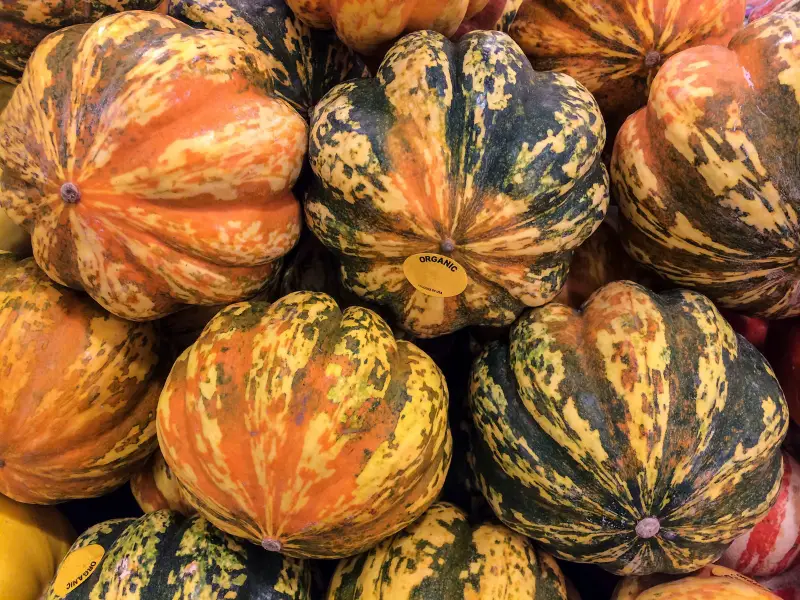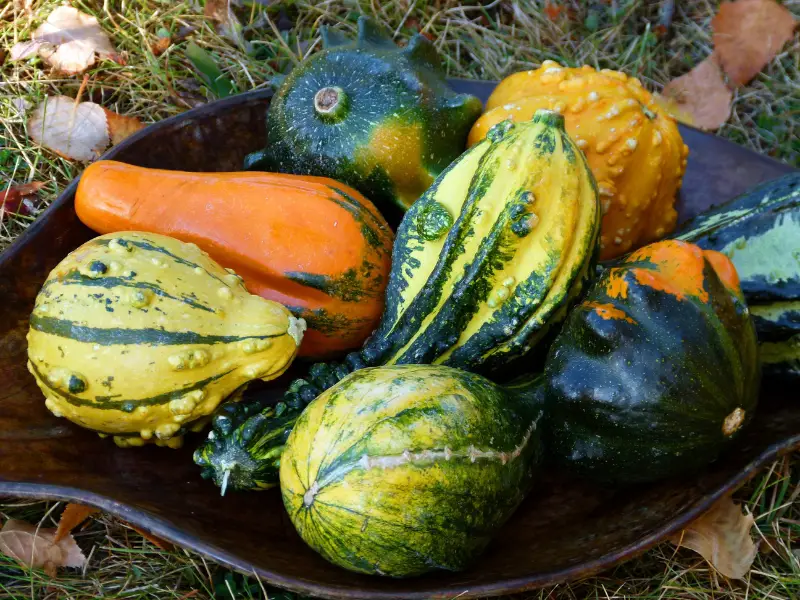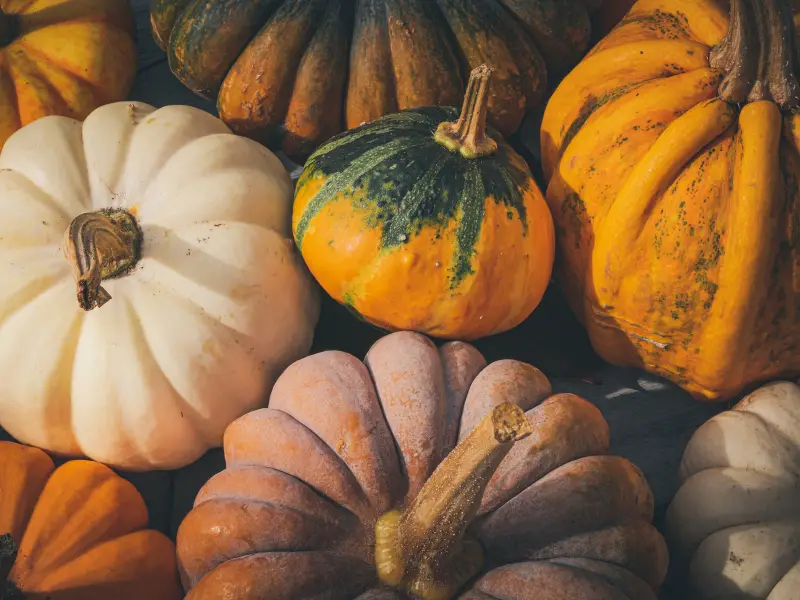Rabbits are known to be voracious eaters, and they can consume a variety of fruits and vegetables. However, not all foods are safe for them to eat. The question arises, can rabbits eat squash? Squash is a popular vegetable that comes in many different varieties. In this article, we will explore whether or not squash is a safe food for rabbits to eat.
Squash is a low-calorie vegetable that is rich in vitamins and minerals. It is a good source of vitamin A, vitamin C, and potassium. However, some types of squash are high in sugar and carbohydrates, which can be harmful to rabbits. In addition, the seeds and skin of some squash varieties can be difficult for rabbits to digest. Therefore, it is important to understand which types of squash are safe for rabbits to eat and how much they can consume.
Can Rabbits Eat Raw Squash?
Rabbits can eat raw squash, and it is a great source of vitamins and minerals for them. Squash is a vegetable that belongs to the same family as pumpkins and cucumbers. It is rich in fiber, potassium, and vitamins A and C. However, it is important to note that not all types of squash are safe for rabbits to eat.
The following table shows the types of squash that are safe for rabbits to eat:
| Safe Squash for Rabbits |
|---|
| Acorn Squash |
| Butternut Squash |
| Delicata Squash |
| Spaghetti Squash |
| Yellow Squash |
It is important to avoid feeding rabbits any other type of squash, as they may be toxic or harmful to them. For example, pumpkin is not a safe food for rabbits as it is high in sugar and can cause digestive problems.
When feeding raw squash to rabbits, it is essential to wash it thoroughly and remove any seeds or skin. The seeds and skin can be difficult for rabbits to digest and may cause blockages in their digestive system. It is also important to feed squash in moderation, as too much can cause diarrhea and other digestive issues.
In conclusion, rabbits can eat raw squash, but it is crucial to feed them only safe types of squash and to prepare it properly. By following these guidelines, rabbits can enjoy the many health benefits of this nutritious vegetable.
Benefits of Feeding Squash to Rabbits

Squash is a nutritious and healthy vegetable that can be beneficial for rabbits when added to their diet in moderation. Here are some of the benefits of feeding squash to rabbits:
1. High in Fiber
Squash is a good source of fiber, which is essential for maintaining a healthy digestive system in rabbits. A diet rich in fiber can help prevent gastrointestinal problems such as diarrhea, constipation, and bloating.
2. Rich in Vitamins and Minerals
Squash is rich in vitamins A and C, which are important for maintaining healthy eyes, skin, and immune system in rabbits. It also contains minerals such as potassium, magnesium, and calcium, which are essential for maintaining strong bones and teeth.
3. Low in Calories
Squash is a low-calorie vegetable, which makes it a great addition to a rabbit’s diet if they are overweight or prone to obesity. It can help them feel full without adding excess calories to their diet.
4. Variety in Diet
Feeding squash to rabbits can add variety to their diet and prevent boredom. It can also help them get used to different tastes and textures, which can be beneficial if they are picky eaters.
Overall, feeding squash to rabbits can provide a range of health benefits if done in moderation. It’s important to introduce new foods slowly and monitor their behavior and digestion to ensure they are tolerating them well.
Risks of Feeding Too Much Squash to Rabbits

Feeding squash to rabbits can be a healthy addition to their diet, but it should be done in moderation. Overfeeding squash to rabbits can lead to several health risks that can be harmful to their health.
Digestive Issues
Squash is high in fiber, and too much of it can cause digestive issues in rabbits. Overfeeding squash can lead to diarrhea, bloating, and other gastrointestinal problems. These issues can be especially dangerous for young or elderly rabbits, as they are more susceptible to health problems.
Weight Gain
Squash is also high in sugar and carbohydrates, which can lead to weight gain in rabbits. Overfeeding squash can lead to obesity, which can cause a host of health problems, including heart disease, arthritis, and respiratory problems.
Nutritional Imbalance
While squash is a nutritious vegetable, it should not be the only vegetable in a rabbit’s diet. Overfeeding squash can lead to a nutritional imbalance, as it does not contain all the necessary vitamins and minerals that rabbits need to stay healthy.
Conclusion
In conclusion, feeding squash to rabbits can be a healthy addition to their diet, but it should be done in moderation. Overfeeding squash to rabbits can lead to several health risks that can be harmful to their health. Rabbit owners should consult with their veterinarian to determine the appropriate amount of squash to feed their rabbits and ensure that their overall diet is balanced and nutritious.
How many squashes can I give my rabbit?
Rabbits can eat squash, but it should be given in moderation. Squash is a good source of vitamins and minerals, but it is also high in sugar and carbohydrates. Therefore, it is recommended to limit the amount of squash you feed your rabbit.
The amount of squash you can give your rabbit depends on its size, weight, and overall health. As a general rule, rabbits should not consume more than 1-2 tablespoons of squash per day. This should be given as a treat, and not as a primary source of food.
It is important to note that some types of squash, such as pumpkin, can cause digestive issues if given in large quantities. Therefore, it is best to introduce squash slowly and in small amounts. If your rabbit shows any signs of digestive upset, such as diarrhea or bloating, stop feeding them squash and consult with a veterinarian.
In addition to squash, rabbits should have a diet that consists of hay, fresh vegetables, and a small amount of pellets. Always make sure that your rabbit has access to fresh water and that their food is of high quality. By providing a balanced diet, you can help ensure that your rabbit remains healthy and happy.
Can rabbits eat squash rind?
Rabbits can eat squash, including the rind, but it’s important to note that not all squash is safe for rabbits to consume. Some types of squash, such as spaghetti squash and pumpkin, are safe for rabbits to eat, while others, like acorn squash, are not recommended due to their high starch content.
When it comes to the rind of squash, it’s generally safe for rabbits to consume in small amounts. However, it’s important to make sure that the squash has been thoroughly washed and the rind has been removed from any pesticides or other harmful chemicals.
It’s also important to note that while the rind of squash is safe for rabbits to eat, it’s not as nutritionally dense as the flesh of the squash. The flesh of squash contains more vitamins and minerals, such as vitamin A, potassium, and fiber, which are essential for a rabbit’s overall health.
In summary, rabbits can eat squash rind, but it’s important to make sure the squash has been washed and the rind has been removed from any harmful chemicals. Additionally, the flesh of squash is more nutritionally dense and should be prioritized over the rind.
Related Articles:

